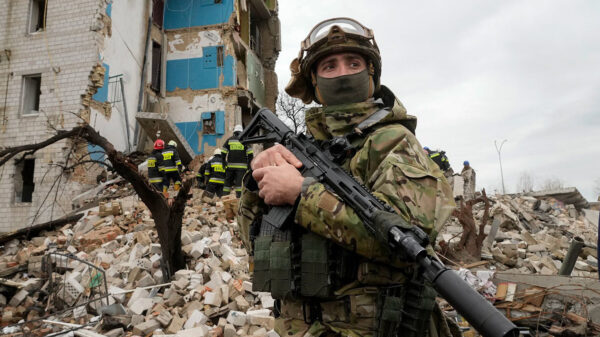Staff writer Lily Huaxue explains the UK’s new counter-terrorism law, Martyn’s Law, and its significance for combatting terrorism after the Manchester Arena bombing in 2017.
New legislation seeks to better protect the public from terrorism threats. The counter-terror Protect Duty Bill is set to be published this spring, otherwise known as Martyn’s Law. The legislation aims to enhance national security and reduce the risk of a terrorist attack by increasing protection in public venues. This comes in light of the final, and frustrating, report of the Manchester Arena Inquiry which confronted the pinnacle question – could the suicide bombing at the Ariana Grande concert on May 22 2017 have been prevented?
Run, Hide, Tell
Named in memory of Martyn Hett, one of the 22 people killed in the Manchester Arena bombing in May 2017, the anti-terrorism legislation is designed to ensure that the public is better protected and safeguarded against “multifaceted, diverse and continually evolving” threats of terror. Campaigned for by Hett’s mother, Figan Murray, it calls for better efforts to be made to prevent future terrorism attacks and save people’s lives by having cohesive systems in place. The government stated that the law would require venues and local authorities to draw up preventative action plans against terror attacks to ensure that there are consistent preparations across the UK in case a situation arises which requires such measures.
Martyn’s law follows a tiered system linked to the nature of the activity, varying depending on the size of the venue and the location, with measures including training on life saving treatments and enhanced security plans. Home Secretary, Suella Braverman, stated that “protecting the public from danger is a key responsibility of any government”; this comes with the reaffirmed that legislation will be published in the springtime. It is recognised that Martyn’s law will not stop terrorism, but in ensuring that security systems are prepared and venues are doing all they can to keep people protected, it could mean that fewer families will suffer in the way that families of the Manchester attack did.
A Night to Remember
The official Manchester Arena Attack Inquiry concluded earlier this month that there was a “realistic possibility” that the security services could have acted more decisively on intelligence and prevented the deadliest terror attack in Britain since the 7/7 London bombings attack in 2005.
The Ariana Grande concert on May 22 2017 was attended by 14,000 people, many of whom were young people and children. Salman Abedi, perpetrator of the horrific events, hid from staff and CCTV in the arena. It is reported that members of the public saw Abedi and recalled that he looked suspicious with a large rucksack, one person raised their concerns with the staff but no action was taken to investigate further. The fatal attack happened at the end of the concert when people began to leave the arena; Abedi entered and detonated the bomb which injured over a thousand.
The report found that had MI5 taken intelligence information seriously when Abedi returned from Libya four days prior to the attack, it “might have been prevented”. In these four days there were ample opportunities for Abedi to be intercepted and his homemade device to be discovered by the security service. Families of the victims have critiqued how MI5 handled the information they had since “at 2017 we were at the highest alert and everybody was warned of an attack in this country, and MI5 – who their sole job, they are well funded and well equipped – had 22 pieces of information about Salman Abedi”. The conclusion remains that there was inadequate attention and action paid towards Abedi from our security agency and 22 innocent lives were lost as a result of these failings.
Too Little, Too Late
There are bittersweet reactions to the announcement of the Bill coming into force this spring, as the father of the youngest victim of the terror attack announces his plans to sue MI5 for their inaction. Saffie Roussos, 8, was the youngest of those killed in the bombing; her father, Andrew Roussos is said to have instructed solicitors to prepare a case for suing the security service who bear “most of the blame” for the attack. A possible avenue for a claim to the High Court rests on Article 2 of the Human Rights Act 1998 which states that “everyone’s right to life shall be protected by law”. There are indications that other families of the deceased will join in the legal action.
Roussos stated that “it’s the only way to learn. Everybody learns by hitting them hard in the pocket”.
Despite the rare apology from MI5’s director, Ken McCallum, who expressed “deep regret” that the service did not obtain sufficient intelligence or act on that which they had to intervene in the attack, the apology was too late. A sentiment felt amongst the families of the victims alongside the feeling that “there were too many missed opportunities” by those who are supposed to protect us.
It is also thought that Abedi could have been stopped at Manchester Airport from his return from Libya, as one of the ten countries on the Crisis Group’s Watch List in 2017 for countries facing conflict and humanitarian emergency, its purpose to save lives and increase prospects for state stability.
While Martyn’s Law stands set to improve the safety and security of public venues, it is clear that there are more serious issues within our security system that need revising to ensure our security systems are at optimal condition to protect the people.



















